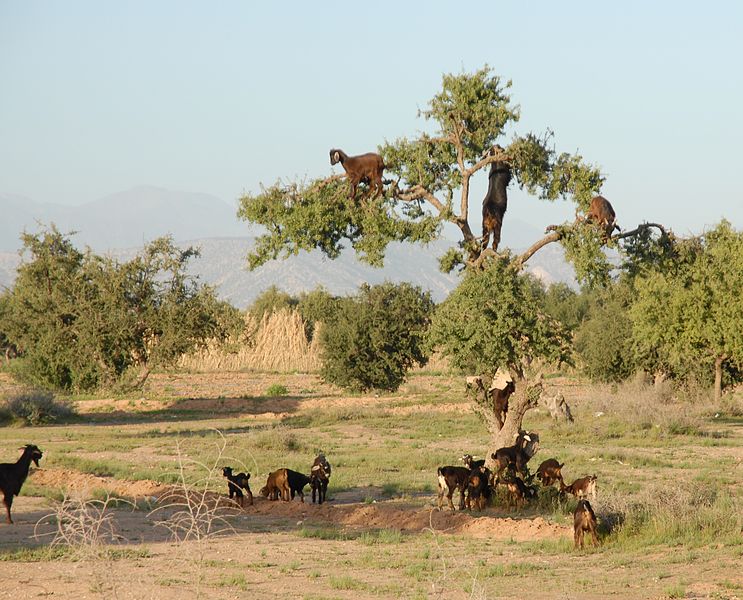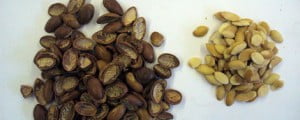Argan oil, rich in vitamin E and fatty acids, has become the sensation of the decade, sought after by chemists, dieticians, hair salons, chefs and cosmeticians. The only problem with Argan was its availability: The Argan tree takes 15 years to yield nuts and one tree can yield only a couple liters of oil, making production costly and limited.
Until recently, it was a rare product grown only in the Atlas Mountains and traditionally made by Moroccan tribes, as the Argan tree could not grow outside of Morocco.
Relates Stories:
New Satellite System Helps Farmers Detect Micro-Changes
Growing Forests In The Desert
Now, Israeli company Sivan is developing “Argan 100” – a super strain of Argan that is tolerant of the Mediterranean climate and can produce ten times more nuts than the average tree in Morocco, they say.
“We are the only company that knows how to raise Argan trees and to bring them to market professionally, so that every year we will know how much oil to expect,” says company’s chief agronomist Chaim Oren.
Based on 25 years of field research, Sivan’s agronomists found a way to produce the oil from their own groves and refuted the widespread legend associated with the production of the oil. According to this legend, Argan oil could only be processed from the nut – which looks like an unripe olive – after its hard shell was removed via a goat’s digestive tract.
Oren says there is in fact no need for goats to perform the job of middlemen.
“I was exposed to the Argan trees many years ago, and we did a breeding session in Israel,” Oren says. “We pollinated trees with other trees. Ours are resistant to soil disease, giving these trees a steady yield every year.”
To date, about 2,500 Argan trees have been planted in the Ashkelon, Arava and Negev regions in Israel.
Sivan, founded in 2007 and based in Ramat Hasharon, Israel, sells Argan oil to wholesalers, with small quantities of leftovers sold online. Their eventual plan is to sell their Argan 100 to other countries.
Related posts

Resilient And Nutritious New Plant-Based Milk Aims To Make A Splash

Chocolate From Cultivated Cocoa Comes Without Environmental Toll

Plastic Fantastic: Startup Takes PVC Back To Its Crude Oil Roots





Facebook comments